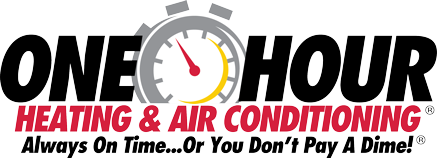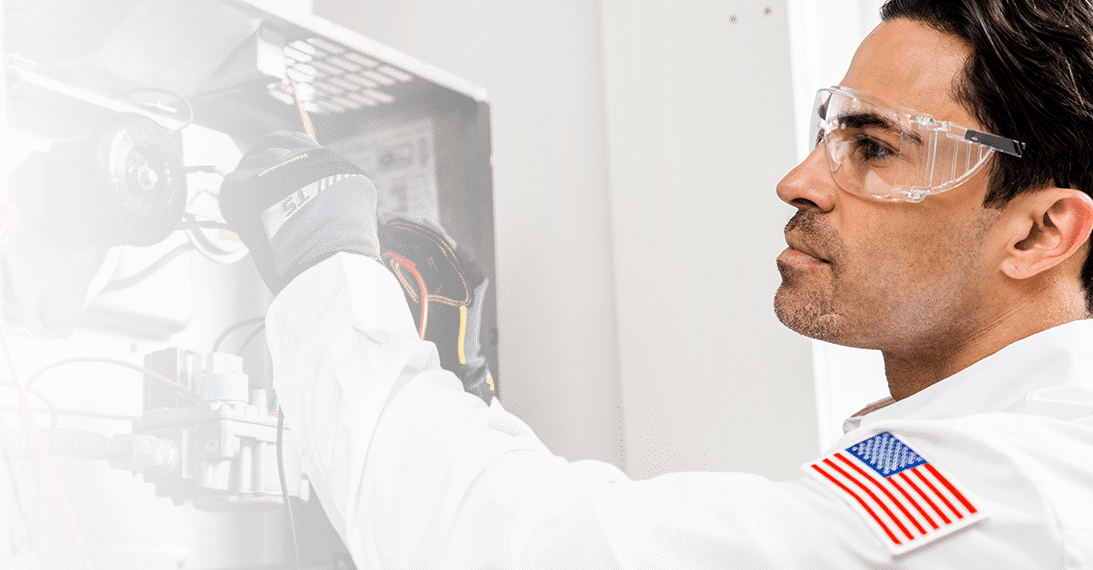Stay Cool and Save Money This Summer
Are you looking for energy saving tips for summer to combat high energy bills?
One of the most effective ways to reduce your energy consumption is by optimizing your thermostat settings.
By setting your thermostat to 78°F when you’re home and need cooling, you can significantly lower your energy costs.
This temperature setting provides a comfortable environment while ensuring efficient use of your cooling system.
When you’re away from home, consider raising the thermostat to 85°F. This adjustment helps to minimize energy usage without compromising comfort when you’re not there.
Additionally, investing in a programmable thermostat can further enhance your energy savings.
These devices allow you to set schedules that automatically adjust the temperature based on your daily routine, ensuring that your cooling system is used efficiently.
Smart thermostats go a step further by learning your habits and optimizing settings to balance comfort and energy use.
This means you can enjoy a cool home without the constant worry of high energy bills, as the thermostat takes care of adjusting temperatures for you.

Optimize Your Thermostat Settings
Programmable Thermostats
Investing in a programmable thermostat is an excellent way to manage your home’s temperature efficiently and reduce energy consumption during the summer.
These advanced devices allow you to set schedules that automatically adjust the temperature based on your daily routine, ensuring that your home is cool when you need it to be and conserving energy when you don’t.
For instance, you can program the thermostat to lower the temperature just before you wake up or return home, and raise it while you’re away or sleeping.
Smart thermostats take this convenience a step further by learning your habits over time.
They use data on your preferences and schedule to optimize temperature settings, maintaining comfort while minimizing energy use.
These devices can also be controlled remotely via smartphone apps, allowing you to adjust settings on the go and ensuring you never waste energy heating or cooling an empty house.
Improve Home Insulation
Seal Cracks and Openings
Did you know that small gaps and cracks in your home can lead to significant energy loss?
Sealing these openings is a simple yet effective way to enhance your home’s energy efficiency.
Use caulk or weatherstripping to seal gaps around doors, windows, and other openings.
This prevents cool air from escaping and hot air from entering, reducing the workload on your air conditioner.
Upgrade Windows and Doors
Investing in energy-efficient windows and doors can also make a substantial difference.
Double-glazed windows with low-emissivity (low-E) coatings are particularly effective at reducing heat gain, which keeps your home cooler during the summer.
Additionally, upgrading to insulated doors can help maintain a consistent indoor temperature, further reducing the need for excessive cooling.
Use Fans Effectively
Ceiling Fans
Using ceiling fans is an excellent way to enhance your home’s cooling without relying solely on air conditioning.
Ceiling fans create a wind-chill effect that makes you feel cooler, allowing you to set your thermostat about 4 degrees higher without sacrificing comfort.
This not only helps in reducing energy consumption but also lowers your utility bills.
To maximize the cooling effect, ensure that your ceiling fan rotates counterclockwise during the summer.
This direction pushes cool air down, creating a breeze that enhances the cooling effect.
Ventilation Strategies
Effective ventilation can significantly reduce indoor temperatures and improve comfort.
One of the key strategies is to use exhaust fans in bathrooms and kitchens to remove heat and humidity generated by activities such as cooking and showering.
It’s crucial to ensure these fans vent outside rather than into the attic to maximize their efficiency.
This helps to remove the hot, moist air from your home, preventing it from accumulating and making your cooling systems work harder.
Combining these ventilation strategies with the use of ceiling fans can create a more comfortable and energy-efficient home environment.
These methods not only enhance cooling but also contribute to better air quality and reduced energy costs.

Efficient Use of Air Conditioning
Regular Maintenance
Keeping your air conditioning system well-maintained is crucial for its efficient operation.
Schedule regular maintenance checks to ensure your unit is running at its best.
This includes cleaning or replacing filters every month or two, especially during periods of heavy use.
Regular maintenance not only improves efficiency but also extends the lifespan of your equipment.
Proper Placement
Proper placement of your thermostat and air conditioning units can significantly impact their efficiency.
Avoid placing heat-generating appliances, such as lamps or televisions, near your thermostat.
The heat from these devices can cause your air conditioner to run longer than necessary, increasing your energy consumption.
Smart Use of Appliances
Energy-Efficient Appliances
Upgrading to energy-efficient appliances can make a significant impact on your summer energy savings.
Look for appliances with the ENERGY STAR label, which indicates they meet stringent energy efficiency guidelines set by the U.S. Environmental Protection Agency.
These appliances use less energy and water, saving you money on utility bills while reducing your environmental footprint.
Best Practices for Major Appliances
Implementing best practices for using your major appliances can also help reduce energy consumption.
For instance, always run full loads in your dishwasher and washing machine to maximize efficiency.
Use cold water for washing clothes whenever possible, as heating water accounts for a substantial portion of energy use in these appliances.
Additionally, avoid using heat-generating appliances like ovens and dryers during the hottest parts of the day.
Instead, opt for microwaves, slow cookers, or outdoor grills to keep your kitchen cool.
Manage Natural Light and Heat
Window Treatments
Managing natural light effectively can play a crucial role in maintaining a cooler home during summer.
Install blackout curtains or shades, especially on south- and west-facing windows, to block out the intense afternoon sun.
Blackout curtains are particularly effective as they can significantly reduce heat gain by preventing sunlight from entering your home.
Strategic Use of Blinds and Curtains
Another simple yet effective strategy is to close blinds and curtains during the hottest part of the day.
This helps keep your home cooler and reduces the workload on your air conditioning system.
For optimal results, use reflective blinds or light-colored curtains, which can reflect sunlight and further reduce heat absorption.
Water Heating Efficiency
Optimal Water Heater Settings
One often overlooked area for energy savings during summer is your water heater.
Setting your water heater to 120°F is a simple adjustment that can save on energy costs and reduce the risk of scalding.
This temperature is sufficient for most household needs and helps minimize the energy required to heat the water.
Low-Flow Fixtures
Installing low-flow showerheads and faucets is another effective way to reduce hot water usage and save on both water and energy.
These fixtures limit the amount of water flow, which means your water heater uses less energy to heat water.
This is a cost-effective upgrade that can lead to substantial savings over time.
Outdoor Energy-Saving Practices
Landscaping for Shade
Strategic landscaping can significantly reduce your home’s cooling costs during the summer.
Planting trees and shrubs around your home provides natural shade, which can lower the temperature of your home by blocking direct sunlight.
Trees planted on the south and west sides of your house are particularly effective.
This natural barrier not only cools your home but also enhances your property’s aesthetic appeal.
Efficient Outdoor Lighting
Switching to solar-powered or LED outdoor lighting is another excellent way to save energy.
Solar lights charge during the day and provide illumination at night without any additional energy cost.
LED lights, on the other hand, use significantly less energy than traditional incandescent bulbs and have a longer lifespan, making them a cost-effective and energy-efficient choice for outdoor lighting.
Behavioral Changes
Unplugging Unused Electronics
Many household electronics and appliances consume energy even when they’re turned off, a phenomenon known as “phantom load.”
To combat this, make it a habit to unplug devices when they’re not in use.
This includes phone chargers, televisions, and kitchen appliances.
Using power strips can make this process easier by allowing you to disconnect multiple devices at once.
Adjusting Daily Routines
Simple changes in daily routines can lead to significant energy savings.
For instance, try to schedule energy-intensive activities like laundry and dishwashing during cooler parts of the day to reduce the strain on your air conditioning system.
Additionally, taking advantage of natural daylight for indoor activities can reduce the need for artificial lighting, further lowering your energy consumption.
Renewable Energy Solutions
Solar Panels
Incorporating renewable energy solutions, such as solar panels, into your home can significantly reduce your energy bills and environmental footprint during the summer and throughout the year.
Solar panels convert sunlight into electricity, providing a sustainable and cost-effective source of energy for your home.
By installing solar panels, you can generate your own electricity, reduce your dependence on the grid, and potentially lower your utility bills.
Additionally, the long-term savings on energy bills can make solar panels a financially sound investment over time.
Solar Water Heaters
Another renewable energy solution to consider is a solar water heater.
Solar water heaters use the sun’s energy to heat water, reducing the need for traditional water heating methods that consume electricity or gas.
These systems typically consist of solar collectors and a storage tank, and they can provide a significant portion of your hot water needs during the summer months.
This hybrid approach maximizes energy savings and ensures consistent performance.
Wind Turbines
For homeowners with ample land, small wind turbines can be another viable renewable energy option.
Wind turbines generate electricity by harnessing the power of the wind, which can complement solar power and provide a consistent energy source, particularly in areas with frequent winds.
While wind turbines require a significant initial investment and are subject to zoning regulations, they can provide substantial long-term energy savings and reduce reliance on non-renewable energy sources.
Battery Storage Systems
To fully leverage the benefits of renewable energy systems, consider installing a battery storage system.
Battery storage allows you to store excess energy generated by solar panels or wind turbines for use when production is low or demand is high.
This ensures that you have a reliable supply of electricity even during power outages or periods of low renewable energy production.
By integrating renewable energy solutions into your home, you can significantly reduce your environmental impact and achieve greater energy independence.
These systems offer long-term savings, sustainability, and reliability, making them a worthwhile investment for homeowners looking to enhance their energy efficiency and reduce their carbon footprint.
Seasonal Maintenance Tips
HVAC System Checkup
Regular maintenance of your HVAC system is crucial to ensure it operates efficiently throughout the summer.
Scheduling a professional checkup before the hot season begins can help you avoid unexpected breakdowns and ensure your system runs smoothly and efficiently.
During a professional maintenance visit, technicians perform several critical tasks, including cleaning the coils, checking refrigerant levels, and inspecting the ductwork for leaks.
Cleaning the coils is essential because dirty coils can reduce the system’s efficiency, causing it to work harder and consume more energy.
Checking refrigerant levels ensures that your system can cool your home effectively without wasting energy.
Inspecting the ductwork for leaks is vital, as leaks can lead to significant energy loss and increased utility bills.
In addition to these tasks, regular maintenance can help identify and resolve any potential issues early, preventing costly repairs down the line.
A well-maintained HVAC system not only reduces energy consumption but also extends the lifespan of the equipment, providing better value for your investment.
Home Energy Audits
Consider investing in a professional home energy audit to identify areas where you can improve energy efficiency.
An energy audit provides a comprehensive assessment of your home’s energy use and can highlight specific areas where improvements can be made, such as insulation upgrades, sealing leaks, and optimizing your HVAC system.
During an audit, a professional will use tools like blower doors, infrared cameras, and thermographic scans to detect air leaks and insulation gaps.
This thorough evaluation can reveal hidden issues that might be causing your energy bills to spike.
Many utility companies offer rebates or discounts on energy audits, making it a cost-effective way to enhance your home’s energy efficiency.
The recommendations from an energy audit can help you prioritize upgrades and improvements that will have the most significant impact on your energy use and savings.
Common recommendations include adding insulation to attics and walls, sealing gaps around windows and doors, and upgrading to energy-efficient appliances and lighting.

Conclusion
Implementing these energy-saving tips can help you maintain a cool, comfortable home while significantly reducing your energy bills during the summer months.
From optimizing your thermostat settings and improving home insulation to using fans effectively and managing natural light, each strategy plays a vital role in enhancing energy efficiency.
Regular maintenance of your HVAC system and adopting energy-efficient behaviors are essential steps toward sustainable living.
Residents of Leander, TX, and Liberty Hill, TX, can benefit greatly from these tips, ensuring a more energy-efficient and cost-effective summer.
One Hour Heating & Air Conditioning of Central Texas is committed to helping you achieve maximum energy efficiency and comfort.
Whether you need a professional HVAC checkup, advice on energy-saving practices, or assistance with home energy audits, we are here to support you every step of the way.
And we’re here to assist with all your HVAC needs, ensuring your systems are running efficiently and effectively.
FAQs
- How can I reduce my energy consumption during the summer?
To reduce energy consumption during the summer, optimize your thermostat settings, use energy-efficient appliances, improve home insulation, and implement strategic ventilation and shading practices. Regular maintenance of your HVAC system and adopting energy-saving behaviors like unplugging unused electronics can also help.
- What are some tips for using air conditioning efficiently?
For efficient air conditioning use, set your thermostat to 78°F when you’re home and 85°F when you’re away. Schedule regular maintenance, clean or replace filters monthly, and ensure the unit is properly placed away from heat sources. Using ceiling fans can also help distribute cool air more effectively.
- How does insulation affect energy efficiency?
Good insulation helps maintain a consistent indoor temperature by preventing heat from entering during the summer and escaping during the winter. This reduces the workload on your HVAC system, leading to lower energy consumption and utility bills.
- What are some low-cost ways to save energy at home?
Low-cost energy-saving methods include sealing cracks and openings, using blackout curtains, switching to LED light bulbs, and unplugging unused electronics. Additionally, simple behavioral changes like adjusting your daily routines and using natural light can lead to significant energy savings.
- Why is regular HVAC maintenance important?
Regular HVAC maintenance ensures that your system operates efficiently, reducing energy consumption and preventing costly breakdowns. Maintenance tasks such as cleaning coils, checking refrigerant levels, and inspecting ductwork can improve the system’s performance and extend its lifespan.
What are your favorite energy-saving tips for summer? Share your thoughts in the comments below!





